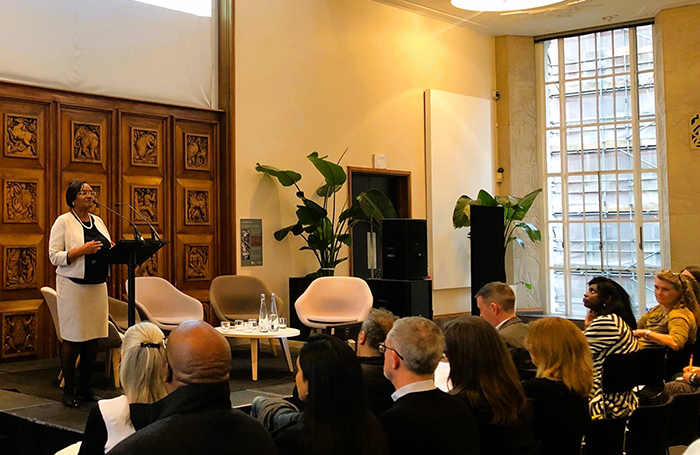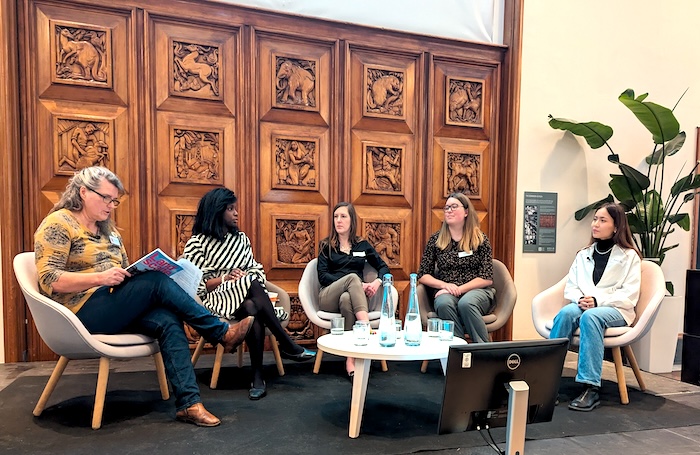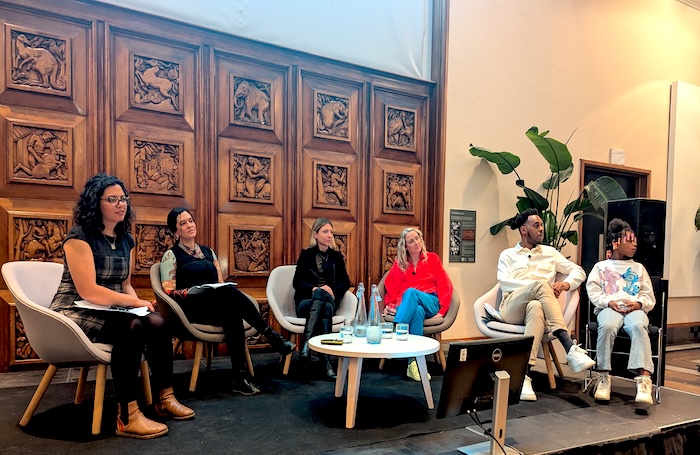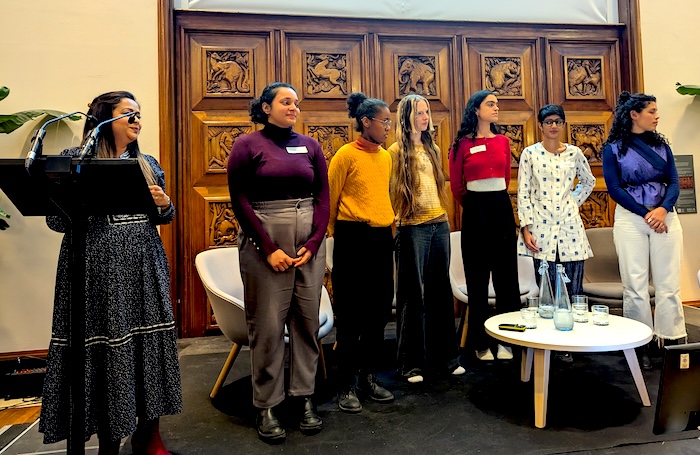On the 23 of January 2024, the RIBA Inclusion and Diversity Team hosted an event addressing gender inequity in the built environment. This thought-provoking, challenging and ultimately, energising, event centred on the expertise and lived experiences of women working in the built environment.
Leaders and professionals from across the sector attended to be in conversation with built environment professionals and experts on gender equity.
We not only heard from women who bravely shared their lived experiences but were also provided with practical, tractable actions that workplaces, teams and individuals can take to address gender inequity and actively create a more inclusive sector.

Actions to tackle gender inequity
From our incredible speakers' contributions, we have distilled 10 actions that you can take today to tackle gender inequity in your practice or workplace.
1. Collaborate (within and across industries)
The whole built environment sector has gender inequity so we must continue working together across industries to share experiences and create sustainable change.
2. Promote active allyship
We're looking at you, men. Men should advocate for equitable policies like shared parental leave, and ‘parenting out loud’. For example, each paternity month has been shown to improve mothers’ earnings by 6.7%.
3. Normalise difficult conversations
We all need to be able to have open, honest conversations about difficult and uncomfortable topics. Senior leaders should be leading these conversations by creating psychologically safe environments.
4. Create 'KIT' days (Keeping in touch days)
Ensure these are paid days and can be accessed equitably by all.
5. Address microaggressions
This includes educating your workforce on unconscious bias and implementing a zero-tolerance policy around harassment both in the office and on site.
6. Become a sponsor
We're looking at you, senior leaders. Being a sponsor is different from being a mentor; it means making way for another woman. You can start small, e.g., inviting a woman colleague to meetings and encouraging her participation.
7. Introduce a 'strong second'
As well as the project leader, provide the team with a ‘strong second’ who can lead or fill in should the project leader need to take time off e.g., due to maternity or sickness.
8. Address salary expectations
Remove salary expectation questions in interviews. Women are much more likely than men to ask for a lower salary. Instead, offer a salary range.
9. Implement a promotion grading system
The system should clearly explain the milestones required to move your career forward. It should be implemented transparently to reduce bias and to address pipeline gender inequity.
10. Join or support a network and/or mentoring platform
Here are just a few to choose from:
- HopHop
- Women in Architecture
- Black Females in Architecture
- FAME Collective
- The Equilibrium Network
- Black Women in Real Estate
- Women in Surveying
- National Association of Women in Construction
- Women in Social Housing
- Women in Property
- Real Estate Women
- Women in Science and Engineering
- Women’s Engineering Society
- Ladies in Real Estate
- Bold as Brass
- Girls Under Construction
- Women in BIM

Speakers and presenters from across the built environment
A special thanks to our incredible speakers:
Hannah Awonuga, Group Head of DEI at Frank Knight and Alesha De-Freitas MBE, Head of Policy and Research at Fawcett Society, delivered inspiring and sobering keynote addresses. Hannah highlighted the importance of senior sponsorship and Alesha provided an alarming overview of the state of gender equity in the UK more broadly.
RIBA CEO, Dr Valerie Vaughan-Dick MBE FRCGP (Hons), and President of the CIOB, Sandi Rhys Jones OBE FCIOB shared their lived experiences with us. They also made a stirring call to action: we cannot allow the same gender inequity that has affected them, to affect our current and future generations of women professionals.
We had a candid and lively conversation with our wonderful panel including Jinming Wei, Carolina Lopato Ricorico, Aimee McKenzie and Rachel Hayden MEng GMICE along with the President-Elect of the Landscape Institute and panel chair, Carolin Göhler, about early career experiences of women working in the built environment.
A range of tractable actions were presented through case studies by Elliott Rae, Louise Regan-Alexander and the dynamic duo, Bettisabel Lamelo Viña and Marina Milosev.
Finally, Tumpa Husna Yasmin Fellows and FAME collective curated an engaging exhibition entitled: Exposing the Barriers in Architecture, from a Female Architects of Minority Ethnic Perspective.
This exhibition is on display at the RIBA Library until 8 March 2024 for International Women's Day. Plan your journey to the RIBA Library at 66 Portland Place, London.

Building on the work of The Chartered Institute of Building (CIOB), The Institution of Civil Engineers (ICE), The Landscape Institute (LI), The Royal Institution of Chartered Surveyors (RICS) and The Royal Town Planning Institute (RTPI), this was part of a series of joint events.
Find out more about RIBA's other equity, diversity and inclusion (EDI) work.










